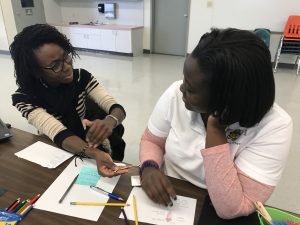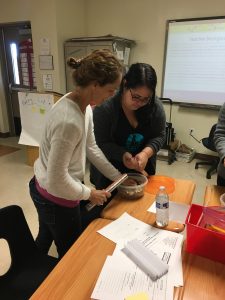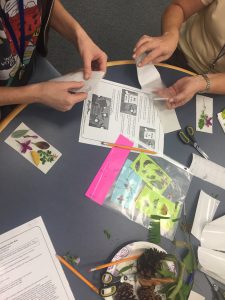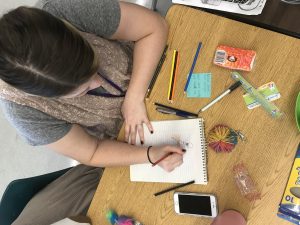Note that this post highlights one of VocabularySpellingCity’s sisters: Science4Us. It is an early elementary science program.
Increasingly, principals and superintendents are asking us to help develop their teachers. We have always provided professional development to support our products but the requests we have been hearing over the last year are of a different order of magnitude. For example principal leaders are searching for strategies as opposed to basic pacing guides.
Rather theatrically, the head of curriculum for elementary schools in one of the larger school districts told us: “Our core problem is developing our teaching staff. If you can help us meaningfully develop our human capital, lets talk. Other wise, we just don’t need any more curriculum or teaching tools. Our teachers are the problem and opportunity, lets focus on them.”
wise, we just don’t need any more curriculum or teaching tools. Our teachers are the problem and opportunity, lets focus on them.”
Fortunately, we have a great approach to training teachers both on best practices as well as how our products help teachers implement these both practices. We provide this training both with our own great trainers and through embedded PD to help move them along. To be honest, teaching teachers is not rocket science. In fact, teaching teachers is in some ways best accomplishment using the same educational techniques that we use to teach students.
 We often use the same principles that we generally deploy for education. For example, lets look at how we help K-2nd teachers get ready to upgrade their science education. This is part of our Science4Us program for K-2nd.
We often use the same principles that we generally deploy for education. For example, lets look at how we help K-2nd teachers get ready to upgrade their science education. This is part of our Science4Us program for K-2nd.
Let’s first be frank about primary teachers and their science teaching skills. Most teachers who focus on the primary grades are not that big into science. And while they often have a few experiments or demos that they like to do in science, most of them lack fluency with the basic science concepts and are somewhat disconcerted by the newly adopted science standards over the last few years.
So where do we start? First, we get back to basics. We engage prior knowledge and often get them hands-on right at the start. Boy, do they like it! We make PD fun and engaging. We want to make sure that we model the same hands-on approach that we hope our teachers will use with their students. With onsite PD, teachers complete investigations, art connections and literacy activities that are directly aligned to their current pacing guides. This will enable them to go right back to their classrooms with their new knowledge. Teachers are then given an opportunity to work with the PD team as they sort through many games and stories that can be easily assigned to students to further enhance their learning.

In terms of literacy, LearningCity has two programs to help elementary language arts programs. In each case, we find that bringing the teachers into the vision has enormous pays offs in terms of improving their elementary languages arts programs.
Lets start with vocabulary study and how VocabularySpellingCity, when used properly, improves reading comprehension scores by over 20%. And it does so with no additional study time and without a major investment. Here’s why: Most elementary teachers are already doing a great job of teaching vocabulary words. They know this because every week their students learn a lot of new words. But these same teachers are unable to get their students to retain this vocabulary so that it enters the long term vocabulary of their students. The problem is that the teachers are trying to follow the breakneck pace for delivering curriculum without any attention to having a retention cycle for vocabulary. This can make all the difference in whether students actually accumulate enough vocabulary and fluency with the vocabulary to be effective readers.

Vocabulary weakness is the primary problem with student reading comprehension. The key here is for teachers to understand how students actually master vocabulary. It’s not from studying it from one week or encountering the word just in teaching. For most students retain words it requires 12-14 encounters with a word over four to six weeks and in a variety of modes: an interdisciplinary approach to learning vocabulary.
